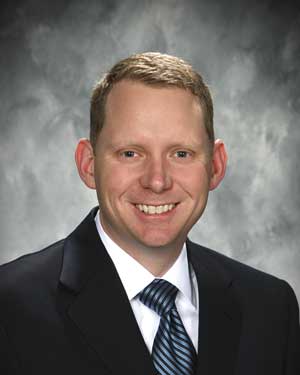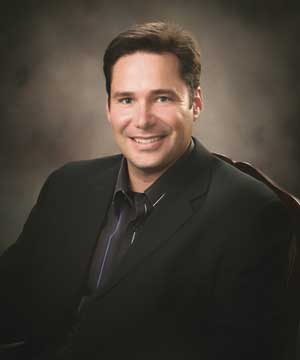Welcome, Shelby; NBB Looks Toward Continued Success in State Governmental Affairs



June 17, 2008
BY Joe Jobe
State regulation of biodiesel is becoming more and more important to ensure availability and quality of the fuel, as well as state economic benefits. For the past six years, Scott Hughes, as director of governmental affairs (and before that a governmental affairs contractor) for the National Biodiesel Board, has made great strides in ensuring appropriate state regulations. During his tenure, Scott was instrumental in overseeing NBB's state regulatory program, including working through TxLED issues in Texas, and assisting in getting consistent definitions of biodiesel and fuel quality standards in state statutes across the country. We are grateful to Scott for moving the industry forward. We wish him great success in the Laborers International Union, which he represented previously in his career.
Filling Scott's shoes is not an easy task, but we were able to find someone with extensive experience in government relations concerning renewable energy and economic development. Shelby Neal comes to the NBB with 10 years of hands-on lobbying experience at the federal and state level, including a position with Missouri Gov. Matt Blunt. His experience also includes consulting with agricultural and biodiesel customers.
After graduating from the University of Missouri-Columbia, Shelby began his career in Washington, D.C., where he served three members of the U.S. Congress (Reps. Jim Talent, Kenny Hulshof and Denny Rehberg) as a policy advisor and legislative director. He eventually returned to Missouri to work as a state and federal lobbyist for the Missouri Soybean Association and then as a policy advisor to Blunt.
Much of Shelby's career in the public service sector has been focused on agriculture and energy. He wrote the Missouri Renewable Fuel Standard, which requires most Missouri gasoline to contain 10 percent ethanol. He also helped pass two of the first ever value-added agriculture bills to be signed into law by the president. These bills, enacted in 2000 and 2002, created the Value-Added Producer Grant Program and the Agriculture Product Marketing Center Program, both of which continue to be two of USDA's most effective rural business development programs. In his new position as the director of state governmental affairs for the NBB, Shelby will focus on the needs of industry stakeholders around the country.
"Every state is different and it is incumbent upon me to become as expert as possible about the unique aspects of biodiesel in each one," Neal said. "I plan to become a key and trusted resource for the industry, working in conjunction with stakeholders to achieve desired outcomes in the state regulatory and legislative arenas."
Shelby is originally from Joplin, Mo., and now resides in Columbia, Mo., with his wife Laura. Please welcome Shelby to our team.
NBB facilitates $1.2 million for soy research
In May, the NBB announced support for a three-year research project designed to increase America's supply of renewable oil used in the production of biodiesel. The $1.2 million
grant includes funding support from the U.S. Department of Transportation.
The recipient, Donald Danforth Plant Science Center, is a not-for-profit research institute based in St. Louis. The center specializes in research on how plants grow and develop, and resist disease, drought, heat and cold, and what adaptations must be made to decrease the need for chemical fertilizers and pesticides. This research project will focus on increasing oil produced in soybean seeds-while keeping the same amount of protein-by altering specific biochemical pathways that are embedded within the soybean plant.
U.S. Sen. Kit Bond, R-Mo., was instrumental in getting the NBB and Danforth together to make this happen. "Making biofuels more efficient puts America one step closer to a stable home-grown energy supply, and I applaud the partnership of the Danforth Center and the National Biodiesel Board for their leadership and vision," Bond said.
Maintaining and enhancing environmental sustainability is a priority of the biodiesel industry. Using less energy to produce more oil from the same acreage represents a fundamental step toward sustainability.
"We are proud to support the Danforth Center as researchers there look for ways to get more bang for the buck from each soybean seed," said NBB CEO Joe Jobe. "Whatever advances are made on soybeans will have a high likelihood of being transferred to other oilseed crops-other biodiesel sources."
Upcoming BQ-9000 workshops announced
The National Biodiesel Accreditation Commission is continuing its workshops on how to become and stay BQ-9000 compliant. To continue building upon the increasing percentage of in-spec biodiesel in the United States, the commission offers the following schedule of workshops:
Understanding and Implementing BQ-9000-This one-day seminar provides the fundamentals for implementing the BQ-9000 quality management program, the voluntary quality management system requirements for biodiesel producers and marketers. This includes understanding the details of the requirements, the scope of work required to implement them, and the most efficient approaches to managing the registration project.
› July 30-Denver
› Nov. 19-Indianapolis
Internal Auditor Training-The current revisions of the BQ-9000 quality management standards for both producers and marketers require annual internal audits of BQ-9000 quality management programs. The two-day auditor training workshop teaches in-depth quality procedures to stay in compliance with updates and revisions necessary to keep BQ-9000 compliance.
› Aug. 1-2-Denver
› Nov. 20-21-Indianapolis
For more information and registration, visit www.bq-9000.org.
Sincerely,
Joe Jobe
NBB CEO
Filling Scott's shoes is not an easy task, but we were able to find someone with extensive experience in government relations concerning renewable energy and economic development. Shelby Neal comes to the NBB with 10 years of hands-on lobbying experience at the federal and state level, including a position with Missouri Gov. Matt Blunt. His experience also includes consulting with agricultural and biodiesel customers.
After graduating from the University of Missouri-Columbia, Shelby began his career in Washington, D.C., where he served three members of the U.S. Congress (Reps. Jim Talent, Kenny Hulshof and Denny Rehberg) as a policy advisor and legislative director. He eventually returned to Missouri to work as a state and federal lobbyist for the Missouri Soybean Association and then as a policy advisor to Blunt.
Much of Shelby's career in the public service sector has been focused on agriculture and energy. He wrote the Missouri Renewable Fuel Standard, which requires most Missouri gasoline to contain 10 percent ethanol. He also helped pass two of the first ever value-added agriculture bills to be signed into law by the president. These bills, enacted in 2000 and 2002, created the Value-Added Producer Grant Program and the Agriculture Product Marketing Center Program, both of which continue to be two of USDA's most effective rural business development programs. In his new position as the director of state governmental affairs for the NBB, Shelby will focus on the needs of industry stakeholders around the country.
"Every state is different and it is incumbent upon me to become as expert as possible about the unique aspects of biodiesel in each one," Neal said. "I plan to become a key and trusted resource for the industry, working in conjunction with stakeholders to achieve desired outcomes in the state regulatory and legislative arenas."
Shelby is originally from Joplin, Mo., and now resides in Columbia, Mo., with his wife Laura. Please welcome Shelby to our team.
NBB facilitates $1.2 million for soy research
In May, the NBB announced support for a three-year research project designed to increase America's supply of renewable oil used in the production of biodiesel. The $1.2 million
grant includes funding support from the U.S. Department of Transportation.
The recipient, Donald Danforth Plant Science Center, is a not-for-profit research institute based in St. Louis. The center specializes in research on how plants grow and develop, and resist disease, drought, heat and cold, and what adaptations must be made to decrease the need for chemical fertilizers and pesticides. This research project will focus on increasing oil produced in soybean seeds-while keeping the same amount of protein-by altering specific biochemical pathways that are embedded within the soybean plant.
U.S. Sen. Kit Bond, R-Mo., was instrumental in getting the NBB and Danforth together to make this happen. "Making biofuels more efficient puts America one step closer to a stable home-grown energy supply, and I applaud the partnership of the Danforth Center and the National Biodiesel Board for their leadership and vision," Bond said.
Maintaining and enhancing environmental sustainability is a priority of the biodiesel industry. Using less energy to produce more oil from the same acreage represents a fundamental step toward sustainability.
"We are proud to support the Danforth Center as researchers there look for ways to get more bang for the buck from each soybean seed," said NBB CEO Joe Jobe. "Whatever advances are made on soybeans will have a high likelihood of being transferred to other oilseed crops-other biodiesel sources."
Upcoming BQ-9000 workshops announced
The National Biodiesel Accreditation Commission is continuing its workshops on how to become and stay BQ-9000 compliant. To continue building upon the increasing percentage of in-spec biodiesel in the United States, the commission offers the following schedule of workshops:
Understanding and Implementing BQ-9000-This one-day seminar provides the fundamentals for implementing the BQ-9000 quality management program, the voluntary quality management system requirements for biodiesel producers and marketers. This includes understanding the details of the requirements, the scope of work required to implement them, and the most efficient approaches to managing the registration project.
› July 30-Denver
› Nov. 19-Indianapolis
Internal Auditor Training-The current revisions of the BQ-9000 quality management standards for both producers and marketers require annual internal audits of BQ-9000 quality management programs. The two-day auditor training workshop teaches in-depth quality procedures to stay in compliance with updates and revisions necessary to keep BQ-9000 compliance.
› Aug. 1-2-Denver
› Nov. 20-21-Indianapolis
For more information and registration, visit www.bq-9000.org.
Sincerely,
Joe Jobe
NBB CEO
Advertisement
Advertisement
Advertisement
Advertisement
Upcoming Events





